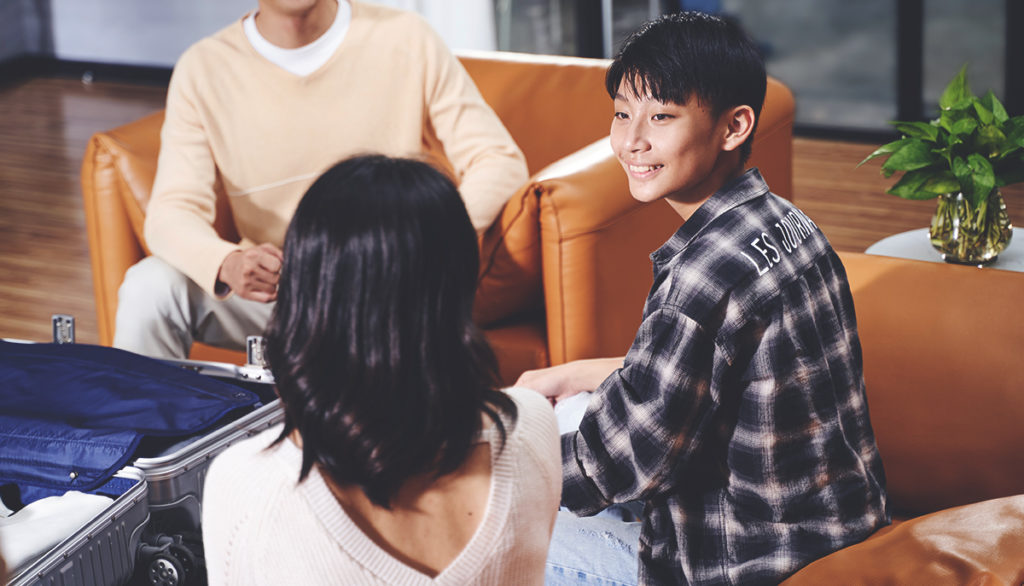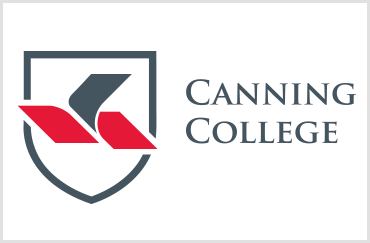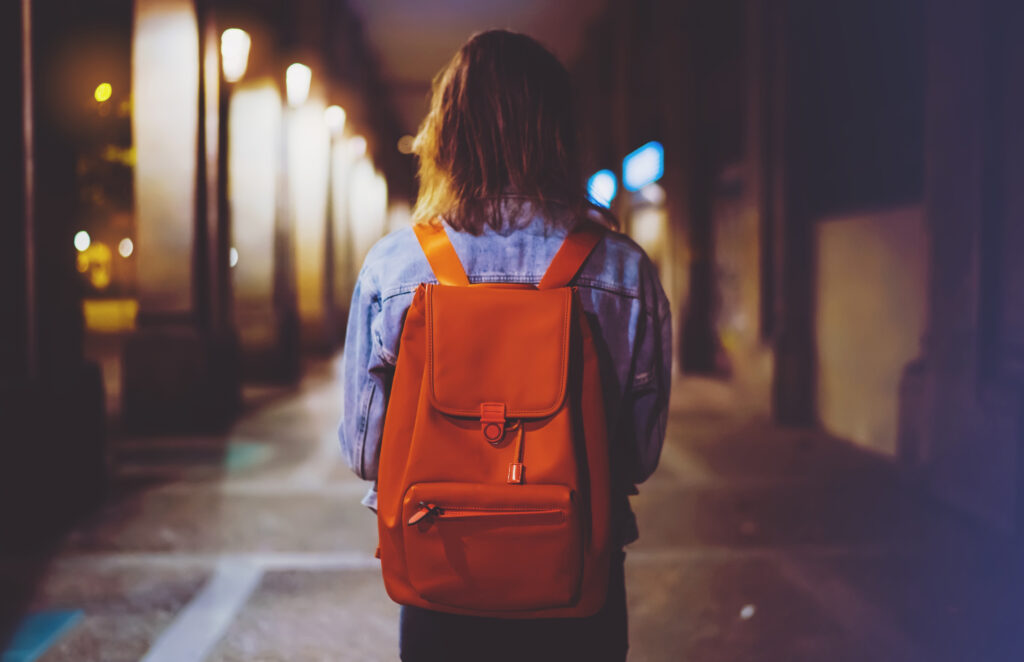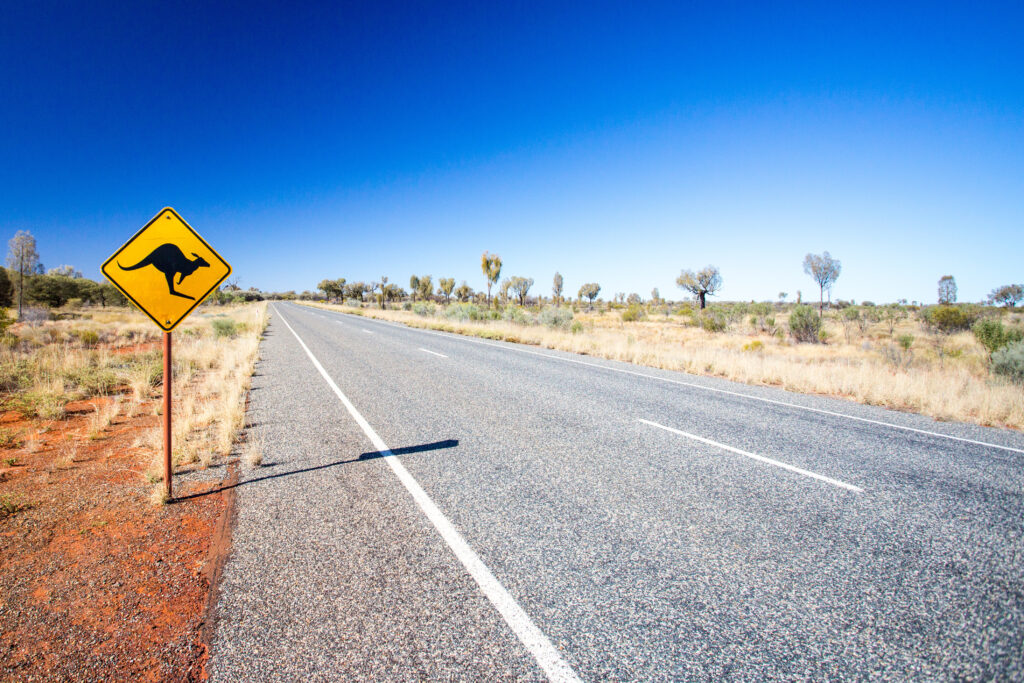It can be daunting for young students to leave their parents and family behind to study in Australia.
Parents may also be nervous about their children being so far away. We’ve put together this explainer to help both students and parents feel comfortable about living abroad.
Welcoming new students
Lisa De’Ceglie, Director of International Operations at Canning College, Western Australia, says it’s essential students feel welcome when they first arrive.
“We want the students…[to] feel like they’re not just arriving in a strange place where they don’t know anyone”, she explains. “And there are many things we do to make them feel comfortable as soon as they arrive.”
Education providers are well-equipped to help international students ease into their new life in Australia, with specialised events, resources and services available. For example, Canning College provides a free airport pick-up service for international students. This means that from the moment a student steps off the plane, they are greeted with a friendly face and a safe journey to their new accommodation. It’s a good idea to check ahead of time what your child’s new education provider offers in regards to welcoming services. That way, they can have a seamless first day after travelling.
Is Australia safe?
When considering a move to Australia, one of the first questions students and parents want answered is: Is Australia a safe place to call home? Students and parents can rest assured that Australia is safe to live and study in. However, like any place, there are some things to keep in mind.
Australia has a smaller population and less density than many other countries. This means there are not typically many people around on the streets after 10pm, especially during the week.
If students are walking home at night, they must be aware of their surroundings. Alternatively, education providers might offer courtesy buses from the inner city back to campus. Canning College students, for instance, can access the courtesy buses provided by Curtin University in the local area.
There are also several handy smartphone apps that can help students in case they get into a difficult situation.
Another thing to watch out for is the sun and the surf. Australia’s coast is home to many beautiful beaches, but the water can be dangerous and the sun’s UV rays very strong. Students should familiarise themselves with water and sun safety so they can enjoy the beaches without trouble.
Can parents come to Australia?
It’s not easy to leave family behind, especially for those who are not yet fully independent, and parents may also want to visit their children in Australia. So it’s normal to ask: can international students bring their parents to Australia?
A parent’s visa for international students in Australia is known as the Student Guardian visa (Subclass 590) and can be applied for through the Australian Department of Home Affairs. If parents are eligible, they can also apply for their own visiting visa.
It’s important to note that parents’ visas can be tied to a student visa. This means they can only stay as long as they provide accommodation or other support to their children for the duration of the study period.
It’s a good idea for family members to come over to help with the settling in process. Canning College, for example, invites all international students’ parents and guardians to join them for orientation week.
During the study period, parents and guardians can also get in touch with the education provider directly with any concerns or queries. Response times vary, but education providers do their best to put parents’ and guardians’ minds at ease.
Where can students live in Australia?
Students under 18 are legally considered minors in Australia, which means that they must make special accommodation arrangements in line with government guidelines. This is to protect the health and welfare of young international students.
Students can choose to have a parent or guardian accompany them to Australia, or they can stay with a relative over the age of 21.
If these options aren’t possible, students can stay in several government-approved accommodation facilities. These include on-campus accommodation, managed student accommodation or homestays.
How can parents prepare their children for the move to Australia?
The most important thing parents and guardians can do to prepare their children for studying overseas is to teach them self-reliance.
Lisa explains that self-reliance is an issue that often comes up for underage students, and her advice to parents is to “try and get your child to become a little bit more self-reliant. Remind them of the things you do for them.”
Students may have never done household chores like cooking or doing laundry, so before getting on a flight to Australia it’s a good idea for them to learn how to use the washing machine!
Above all else, Lisa recommends that parents instil in their children the idea that it is acceptable and normal to ask for help. She sees many students as too shy to speak up for themselves and miss out on valuable learning opportunities.
Being prepared is important, especially when getting to know what rules apply to minors, but being a young international student in Australia is a fun and life-changing experience!







